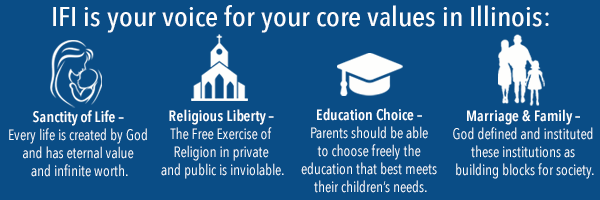Compelled Speech? The 303 Creative SCOTUS Case
Not much time has passed since Christian baker Jack Phillips fought to defend his choice not to make cakes celebrating homosexual unions (2018), and Christian florist Baronelle Stutzman dealt with multiple lawsuits regarding her choice not to arrange flowers for similar functions (2021). Yet, earlier this December, the U.S. Supreme Court heard oral arguments for 303 Creative v. Elenis, a case which is shaping up to be the next high-profile skirmish between the homosexual movement and Christian providers of wedding services. The civil rights snipers are at the same old game again—this time zeroing in on Christian wedding website designer Lorie Smith.
IFI’s cultural affairs writer Laurie Higgins has already slashed apart the argument against Smith in a mic-drop opinion piece on this case. And with legal battles like these, it’s often very easy to uncover the left’s real agenda, an agenda that deserves a floodlight and an industrial-size vacuum cleaner. But while it’s not hard to see where the left is going, it’s often harder to see how they even got here in the first place. Our society has gone through decades of liberalization—supposedly intended to free us from government censorship—but is now beholding the rise of censorship yet again.
For its first century and a half, America was a nation permeated by Christian values. These values didn’t just sit nice and proper in the pews on Sunday morning—they actually influenced the country. In 1811, eminent jurist James Kent issued the landmark ruling People v. Ruggles, upholding a blasphemy case on the grounds that “we are a Christian people, and the morality of the country is deeply ingrafted upon Christianity.” This case stood as good law for well over a century, joined by a host of other cases all agreeing that the government—even while submitting to the free speech protections of the First Amendment—had proper authority to prohibit blasphemy.
Some cases explicitly acknowledged that this was because Christian morals undergirded so much of our society (see Updegraph v. Commonwealth [1824], State v. Chandler [1837]), and others painted it more broadly as maintaining societal order (see Commonwealth v. Kneeland [1838], State v. Mockus [1921], Oney v. Oklahoma City [1941]). Whether it was openly stated or subtly implied, our nation’s legal system acknowledged that Christianity occupied a special place in our societal fabric. Therefore, government had legitimate authority to censor blasphemy in order to preserve legitimate community standards. But that wasn’t all: if you were propagating such other types of caustic speech as the lewd, the obscene, the profane, the libelous, or fighting words, the First Amendment would not save you (see Chaplinsky v. New Hampshire [1942]).
However, this state of affairs did not last forever. In a series of unfortunate developments in 20th-century legal opinion, America’s culture and law began to view “expression” as a good in-and-of-itself, regardless of whether the expression communicated something good or bad. Because “expression” became a good of its own, this now meant that any attempts to suppress the act of speaking—whether you were publicly displaying a four-letter word in a courthouse or publishing pornography—were harmful to society, and violations of the First Amendment (see Cohen v. California [1971] and Miller v. California [1973], respectively). And therefore, the label “freedom of expression” was now all that was needed to ward off those oppressive government censors trying to stamp out individualism and human dignity with their mumbo-jumbo about public morality.
After Burstyn v. Wilson (1952), blasphemy laws themselves were relegated to the dustbin along with all those other archaic colonial relics of religious intolerance. We had now entered a blessed era in which freedom of expression was king, and we could forget about any absolute standards for public morality because we had opened up our society to an open marketplace of ideas. Everything anyone wanted to say—except for the rare case of a clear and present danger—was given a fair hearing, Christians and pornographers alike.
If that sounds odd, it’s because it is. The contemporary interpretation of the First Amendment strives for a weirdly laissez-faire society in which our only definite core value is the absence of any definite core values. And so, Christians and pornographers now team up against the common enemy of “censorship,” which is really the only enemy left in the ring—now that we’ve given a big warm hug to all contradictory points of view at the same time. This self-contradictory societal plan might have tottered along for a few decades, but we are beginning to see it fall before our eyes. Core values are what hold societies together. Without them, societies are merely amorphous population statistics, without any form of identity. Thus, every society has an orthodoxy which it enforces, and now that we’ve evicted Christianity and swept the house clean, a new orthodoxy has moved in. Now we’ve gotten to the 303 Creative case.
The new orthodoxy is the religion of tolerance, and its blasphemy laws are creatively re-named “hate speech” laws. If you tolerate—i.e., accept and affirm—whatever manners of sinful behavior are dictated by societal winds, you can expect to live a happy and peaceful life. If, however, you dare to promote and live out ideas that blaspheme against the prevailing orthodoxy, say, that marriage is an institution ordained by God to join one man and one woman together for life, you can expect to be hounded by the government.
“Wait a minute!” you say, “Aren’t we supposed to be living in a society where we can all speak our mind and live out our own religious convictions?” “Ah, yes,” is the reply, “but of course that doesn’t apply to hateful [translation: blasphemous] speech like yours. You can say what you want as long as you don’t offend other people [translation: the prevailing orthodoxy]. Since your conscience contradicts the fundamental principles of tolerance, you must violate your conscience or pay the price.”
And here the real gloves have come off. The period of liberalization was really just a transition period from one form of censorship to another. In the name of freedom of expression and liberation from ideological tyranny, we threw off the yoke of Christian morality and the accompanying government powers to suppress caustic expression that eroded that foundation. But societies are defined by core ideas—and attempting to value the absence of core values just doesn’t cut it. When we removed the Christian set of core values, it was only a matter of time before we found something else to take its place. And now our censorship policies are moving right back to where we started, this time saluting to the devil instead of to the Lord.
In light of this, it’s time for Christians to stop playing the game that we can all get along without having any rules for getting along. Society will have rules for getting along—the question is whether those will be rules honoring to the Lord or disobedient to Him. As it is now, we relegate Christianity to the personal and private, and acquiesce to the lie that the Constitution requires such a separation of church and state that anything Christian is banned from the realm of public policy. We huddle up next to the pornographers and violent video game manufacturers, and appeal to the fading mantras of “freedom of expression” to justify living out our basic Christian convictions, completely ceding the possibility that there is something objectively true and good about Christianity, something objectively true and good about God’s design for marriage, something objectively true and good about God’s created sexuality. God created the world with a certain created order, and law has an obligation to reflect that order. Period.
Because the legal system runs on precedent, Christian lawyers will often have to appeal to misguided precedent to win needed victories for the side of truth. But it’s important to not let the short game overshadow the long game. The more we appeal to misguided precedent, the more we cement it in legal tradition and the harder it is to eradicate. We must always keep in mind that the ultimate reason we fight to defend the Lorie Smiths of the world is not because censorship is bad. It is because evil is bad—objectively bad, and ought to be so in the eyes of the law—and Lorie Smith is standing for the good.



